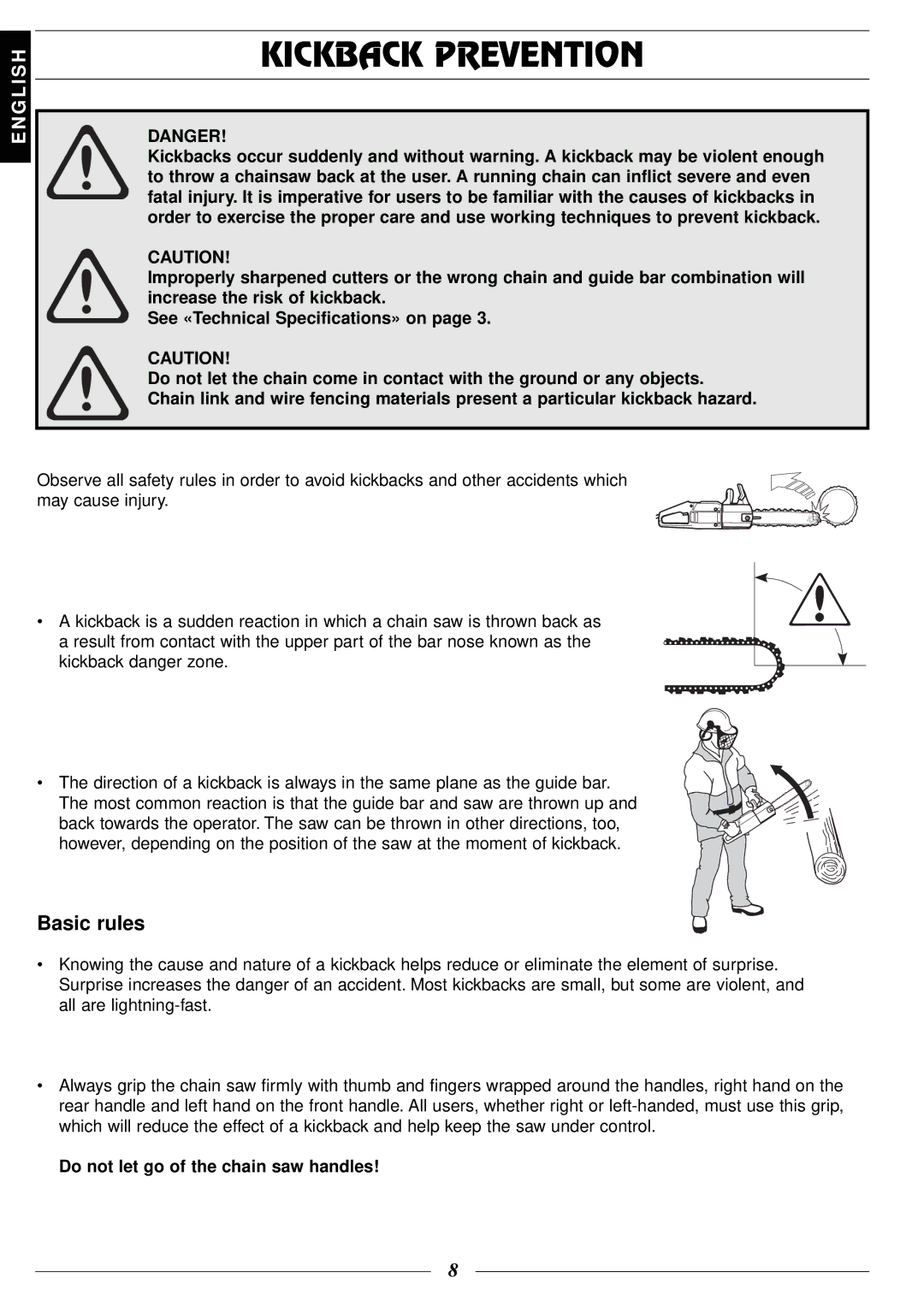315, 318 specifications
The Husqvarna 318 and 315 are two remarkable models from Husqvarna, a brand renowned for its quality outdoor power equipment. These compact ride-on lawn mowers are designed to provide optimal performance, maneuverability, and versatility, making them ideal for both residential and commercial use.One of the key features of the Husqvarna 318 and 315 is their efficient cutting system. Equipped with a high-performance cutting deck, these mowers deliver superior grass-cutting capabilities. The cutting height can be easily adjusted, allowing users to achieve the desired finish with precision. Additionally, the 18-inch cutting width is perfect for navigating tight spaces and corners, making these models suitable for intricate landscaping tasks.
Both models boast an innovative articulated steering system, which enhances their maneuverability. This feature allows the mower to pivot through tight turns, significantly reducing the risk of damage to flower beds and other landscaping features. The Husqvarna 318 and 315 also come with a compact design, making them easy to transport and store.
Equipped with powerful engines, the 318 and 315 provide dependable performance, ensuring that users can tackle even the most challenging lawn care tasks with ease. The engines are designed for fuel efficiency, allowing for longer run times and reduced emissions, aligning with contemporary environmental standards.
The ergonomic seat and intuitive controls provide comfort and convenience, ensuring that users can enjoy extended mowing sessions without discomfort. The dashboard features easy-to-read gauges and controls, making it simple for users to monitor performance and adjust settings on-the-go.
Husqvarna has incorporated cutting-edge technology into these models, including the Bluetooth-enabled connectivity feature. This allows users to track performance data and maintenance schedules directly from their mobile devices, promoting timely upkeep and efficiency.
In conclusion, the Husqvarna 318 and 315 ride-on lawn mowers are versatile and efficient choices for any lawn care enthusiast. With their high-performance cutting systems, innovative steering technology, and user-friendly design, these models are built to enhance the mowing experience. Whether for residential gardens or commercial properties, the Husqvarna 318 and 315 deliver outstanding results, setting a new standard in ride-on mower technology.

